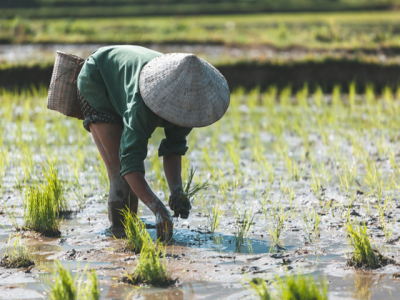Vietnam, Thailand skip Philippines 203,000 T rice tender

Vietnam did not participate in the Philippines rice import tender on November 6, 2018. Photo bv Shutterstock/beboy
Rice exporters Thailand and Vietnam did not submit offers at a Philippines 203,000-tonne import tender, citing stricter terms.
The tender by one of the world’s top rice importers was held to meet unfilled orders after a tender on Oct. 18 for 250,000 tons of rice by Manila’s state-owned National Food Authority (NFA) secured only 47,000 tons due to high offer prices.
Thailand and Vietnam were the only government suppliers accredited for Tuesday’s re-tender. NFA officials said both submitted letters saying they would not participate due to the stricter terms set out by the Philippines food authority.
NFA spokesman Rex Estoperez said import terms had been made more stringent to address concerns that arose from previous rice purchases, including health and safety issues, which would raise the cost for suppliers.
“I can’t say if there will be another bidding,” Mercedes Yacapin, head of the tender panel, told reporters, adding the decision will be left to the NFA Council, which is made up of the country’s economic managers.
President Rodrigo Duterte last month scrapped a 20-year-old government cap on rice imports to help curtail soaring prices of the Philippine diet staple by increasing supply.
The Philippines is on a rice buying spree this year, with import approvals by the NFA hitting 2.4 million tonnes, just below the record 2.45 million tons bought in 2010 when rising global food prices stoked shortage fears.
The NFA is set to hold another import tender for 500,000 tons of rice on Nov. 20.
Related news
 Vietnamese agricultural products win more export orders to Europe
Vietnamese agricultural products win more export orders to Europe After introducing agricultural commodities at SIAL Paris 2018, Vietnamese enterprises successfully received export orders worth millions of dollars.
 Hòa Bình’s safe farm produce promoted in Hà Nội
Hòa Bình’s safe farm produce promoted in Hà Nội Hòa Bình targeted to have 12,000 hectares of farming area for fruit with an output of 30,000 tonnes by 2020, together with 7.5 hectares
 Ninh Bình farms go high-tech
Ninh Bình farms go high-tech Local farmers in the northern province of Ninh Bình’s Ninh Bình City have earned a better living by applying hi-tech farming practices.